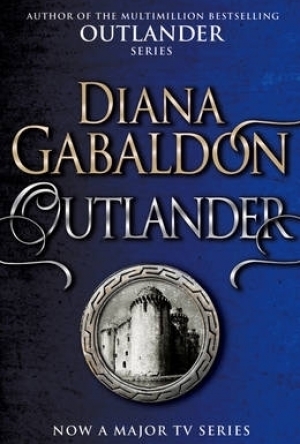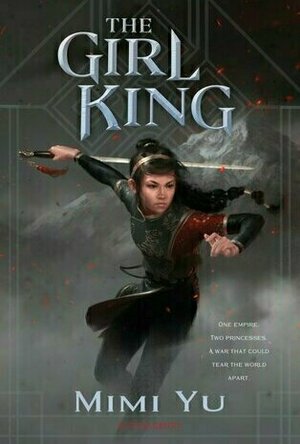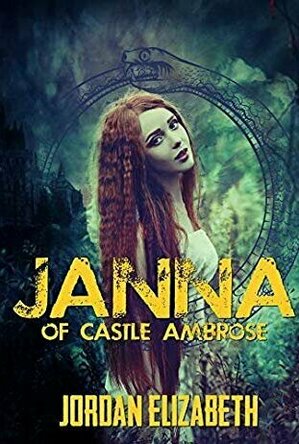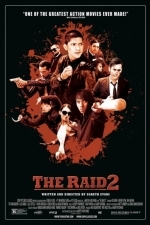The novel is set in two different time periods, the first the aftermath of the Second World War, the second during the 1740s and the build up to the battle of Culloden. One of the strengths of this book, is that Diana Gabaldon has researched the historical settings of this novel well, and paints a fantastic image of the times for the reader. With a background in the study of history, I am normally the first to start picking faults in the historiography of a story, however in this case, I was unable to, and instead able to relax into the plot line itself. The novel also encouraged me to carry out further research into Scotland in the 1740s and even visit the Culloden battlefield (and of course the Fraser stone).
The characters in the novel are well thought out and all have their faults as well as strengths (which in my eyes makes them more believable). Clare, the main character is a strong willed and independent woman, however can be outspoken before her time. Jamie is a character that see through Clare’s eyes and as such, we understand why she falls in love with him, is at times held by the constraints about how men and women should act in marriage during the 1740s, and struggles to cope with Clare’s independence.
As readers we are led through a story of 1740s clan culture in Scotland (including the brutal behaviour of the British officer Jack Randall), as well as the emerging love story between Jamie and Clare. This is ultimately a love story, but sexual scenes are much more subtle in text than the dramatisation of the TV series. As is often the case with books that have been dramatised onto the screen, we also get a much deeper insight into the feelings and emotions of a character, which often struggles to translate onto screen.
Overall, I thoroughly enjoyed this book and eagerly await picking up the sequel to find out what will happen next to Clare, Jamie and Frank.
Sophia (Bookwyrming Thoughts) (530 KP) rated The Girl King (The Girl King, #1) in Books
Jan 23, 2020
<h2><strong>I wanted to like this book.</strong></h2>
In fact, I wanted to love <em>The Girl King</em>. Sisters! Rivals! Betrayal! Family! War! Mimi Yu's debut smells of an action-packed adventure with sibling rivalry, magic and court politics that would be hard to put down. Bonus points for #OwnVoices.
<h2><strong>But much disappointment has occurred.</strong></h2>
Bookwyrms, much disappointment has indeed occurred. I spent loads of time deciding if I should continue trekking my way through <em>The Girl King</em> or calling it quits. Eventually, at 50% through, I decided to call it a day because we don't have time for books that aren't enjoyable.
<h2><strong>We're not going to talk much about the problems involved.</strong></h2>
"Slipskin" feels awfully weird for a shifter/werewolf influence, bookwyrms. Sure, it's "slipping" out of one's "skin" and into another "slipping" into another "skin." But is it just me, or do I think of something gross and slimy at the thought? 🤔
And let's not get started with "pink." I legit thought of newly born babies.
<a href="https://vickywhoreads.wordpress.com/2018/12/22/arc-the-girl-king-by-mimi-yu/">Vicky from Vicky Who Reads</a> has this covered in more detail in her review. (I guarantee you her post is 100x more professional.)
<h2><strong>I didn't connect with anything in <em>The Girl King</em>.</strong></h2>
Sure, I went to at least halfway through the book, but it was a whole lot of back and forth reading between this book and another one. I didn't care about the storyline or the world, even though I could relate to some of the cultural influences included. Despite enjoying Lu's fierceness, I ultimately didn't care about Lu or any of the other characters involved. I found myself interested in continuing the book at some points, but at the same time, I didn't really care.
<a href="https://bookwyrmingthoughts.com/the-girl-king-by-mimi-yu/"; target="_blank">This review was originally posted on Bookwyrming Thoughts</a>
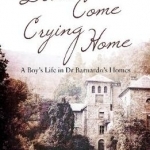
Don't Come Crying Home: A Boy's Life in Dr Barnardo's Homes
Book
At age two, one December day in 1943, Eric is handed over to a stranger, the Reverend Brightman. The...
Rockne and Jones: Notre Dame, USC, and the Greatest Rivalry of the Roaring Twenties
Book
Notre Dame's rallying cry was once "Win one for the Gipper." e football series with Army that...
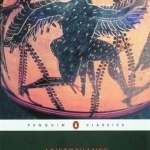
The Birds and Other Plays
Aristophanes, Alan H. Sommerstein and David Barrett
Book
Offering a window into the world of ordinary Athenians, Aristophanes' The Birds and Other Plays is a...

Southern Illinois Salukis Football
Dan Verdun and Jerry Kill
Book
Southern Illinois Salukis Football, the first book to focus solely on the program and its history at...
Hazel (1853 KP) rated Janna of Castle Ambrose in Books
Sep 10, 2019
With the aid of a secret ability to freeze people and being the only person in the country to know of the existence of sea serpents, Janna sets off to the capital where she worms her way into the castle by becoming the apothecary's apprentice. To save her friends and defeat the usurper, Janna must round up rebels across Hamlin. Yet, as she adjusts to her life in the city, Janna realises there are two sides to every story and she may not be on the right side after all. With the rebels rallying troops from across the sea, she may be too late to prevent another civil war.
The story ends with one side becoming the victors and Janna's sea serpents earning their right to come out of hiding and being accepted by human society. The narrative is fast-paced with days, weeks and months speeding past within each chapter. There is an eclectic mix of characters whose personalities pull the story in different directions.
Janna of Castle Ambrose contains some adult scenes that may be unsuitable for younger readers. Although no sex scenes occur per se, they are eluded to in heavy detail. This is a new aspect to Jordan Elizabeth's writing, however, the young adult writing style clashes with the adult material.
Being the first book in a series, it is clear the story is going to continue, however, as the main issue has been resolved, the plot of the next book is unguessable. We shall just have to wait and see.

Empire Four Kingdoms - MMO War
Games and Entertainment
App
Build a fortress, fight an army and conquer enemies in this epic multiplayer game! Use your strategy...
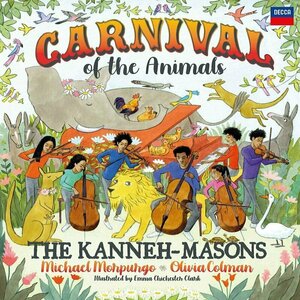
Carnival by Kanneh-Masons
Album
Decca Classics announces the release of Carnival, a very special collaboration between Academy...
Gareth von Kallenbach (980 KP) rated The Raid 2 (2014) in Movies
Jun 19, 2019
Thanks in large part to DVD, the film gained a larger audience thanks to word-of-mouth and now the second in a planned trilogy has been released which ups the action to new levels of hyper connectivity and ultraviolent action.
The Raid 2: Berendal” takes place shortly after the events the first film where officer Rama (Iko Uwais), learns that his exploits in surviving the first film have only increased the danger facing him and his family as the corruption he exposed has made him a target with much more dangerous criminals higher up the food chain. Although he barely survived the events of the first film, Rama agrees to go undercover in a brutal prison in order to keep his family safe and get close to a key individual whose father is one of the biggest crime lords in the region.
His amazing combat skills are tested early and often in prison yet Rama is able to achieve this objective and becomes trusted associate in the crime syndicate following his release thanks to the contacts he made during his incarceration.
Unfortunately for Rama a power struggle is enfolding between son and father as the ambitious son is eager to take a larger slice of his father’s empire even if it means declaring war on the rival families. The film spends a good part of its first hour introducing the characters and setting the tables for the final hour as it intersperses a few fast and brutal fight sequences between.
The final 45 min. the film are essentially one extended fight scene after another that is utterly captivating to watch and despite it’s at times graphic brutality, impossible to look away from. Like the previous film, the speed, precision, originality, and choreography of the fight sequences are truly unique and have set new standards for martial arts films to follow.
While the film is presented in the native Indonesian language with English subtitles, it is very easy to get drawn into the dark and deadly world in which the characters find themselves. Uwais proves that he’s more than just a skilled screen fighter as he infuses Rama with the complexity of the man driven by duty yet utterly devoted to keeping his wife and newborn son safe even when the cost puts him in constant danger and forces him to be away from them for long periods of time.
Evans keeps the action flowing and time and time again aside from the clever way that he introduces what would only be disposal characters by giving them unique and at times charming quirks and characteristics, produces action sequences that leave you wondering how they were able to film them and what kind of person would think up such sequences. My wife commented to me that her blood pressure my surely have been rising from the relentless pacing and nonstop action and tension of the film and the constant barrage of action scenes that while brutal never become repetitive or gratuitous.
The film will not be for everyone as the action is quite brutal and times graphic however the free-form choreography that made the original so memorable has been taken to new levels in the sequel which keeps the action fresh as much as the story and characters keep you riveted during the non-action segments of the film .
All I could say the film is not one for the masses I can easily say this is one of the more enjoyable and better films of the year to date and is one that should not be missed especially if you’re a fan of police dramas or action films.
http://sknr.net/2014/04/11/the-raid-2-berendal/
